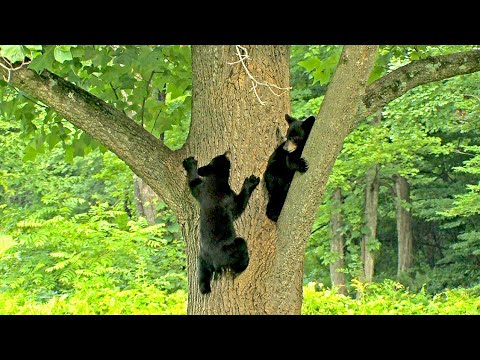The Natural Wildlife of Rhode Island
Rhode Island, known as the "Ocean State," is home to a diverse range of natural wildlife. From its coastal areas to its woodlands, this small state offers a variety of habitats for different species. While many animals can be found in Rhode Island, one question that often arises is, "Do bears inhabit Rhode Island?"
Bear Species in North America
North America is home to several bear species, including the American black bear, grizzly bear, polar bear, and brown bear. The American black bear, scientifically known as Ursus americanus, is the most common bear species in North America and is found in many parts of the continent.
Distribution Range of American Black Bears
American black bears have a wide distribution range across North America. They can be found in almost every state in the United States, with the exception of a few southeastern states and some smaller northeastern states. Their range also extends into parts of Canada and Mexico.
Historical Presence of Bears in New England
Historically, bears were present in New England, including Rhode Island. Early settlers and Native Americans documented encounters with bears in the region. However, as human settlements expanded and deforestation occurred, bear populations declined due to habitat loss and hunting.
Rhode Island’s Ecosystem and Habitat Suitability
Rhode Island’s landscape consists of a mix of forests, wetlands, and coastal areas, making it suitable for a variety of wildlife species. While bears are more commonly associated with larger, more forested states, Rhode Island’s ample woodlands and protected areas still offer potential habitats for bears.
Recent Sightings and Reports of Bears
In recent years, there have been occasional sightings and reports of bears in Rhode Island. While these sightings are relatively rare, they indicate that bears can still occasionally venture into the state. Sightings have been reported mainly in the western and northern parts of Rhode Island, where there is more forest cover.
Possible Factors Affecting Bear Population
Several factors can influence bear populations in an area. Habitat loss, fragmentation, and human development can limit suitable bear habitats. Additionally, hunting practices and poaching can also impact bear populations. These factors, along with climate change and food availability, can affect the presence and abundance of bears in Rhode Island.
Conservation Efforts and Bear Management
To protect and manage bear populations, Rhode Island has implemented several conservation efforts. These include monitoring bear populations, habitat restoration, and implementing hunting regulations. The Rhode Island Department of Environmental Management collaborates with neighboring states and wildlife agencies to ensure effective management practices.
Safety Measures for Rhode Island Residents
While bear encounters are relatively rare in Rhode Island, it is important for residents to be aware of safety measures. Residents should secure their garbage cans, avoid feeding wildlife, and keep a safe distance if they encounter a bear. Educating the public about bear behavior and appropriate responses can help prevent conflicts and ensure the safety of both humans and bears.
Public Awareness and Education Programs
To promote public awareness and understanding of bears, Rhode Island has implemented various education programs. These programs aim to educate residents about bear behavior, habitat protection, and safety measures. Through workshops, public outreach events, and educational materials, the state encourages responsible coexistence with bears and other wildlife.
Future Outlook: Bears in Rhode Island
As Rhode Island continues its efforts in habitat conservation, it is possible that bear populations may slowly increase in the state. However, the small size of Rhode Island and the surrounding urbanization present challenges for the long-term establishment of bear populations. Nevertheless, ongoing conservation efforts, public education, and proactive management can contribute to the future presence of bears in Rhode Island, allowing residents to appreciate and coexist with these magnificent creatures.





